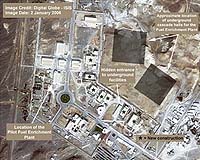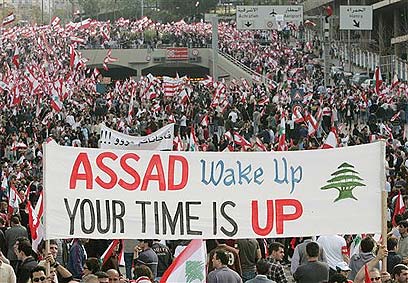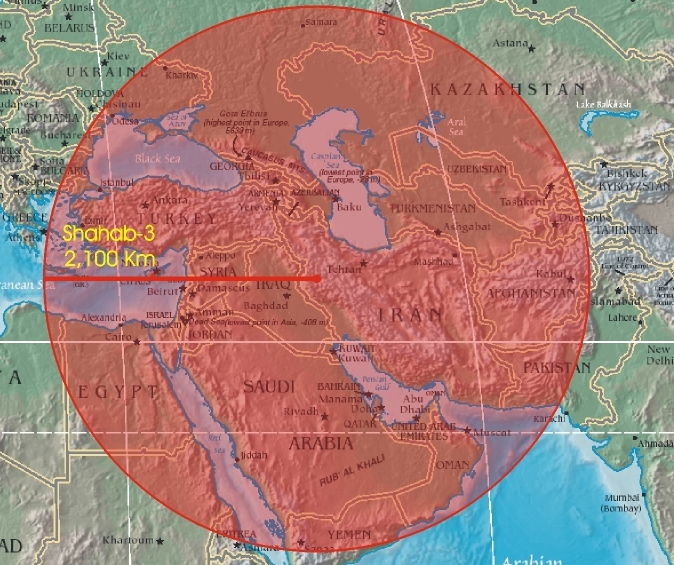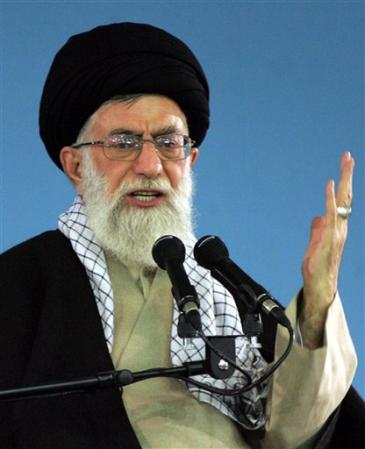This week has been particularly action packed with Israel testing a ballistic missile system, Turkey threatening to send its warships to escort aid ships to the port of Gaza, Syria - Arab League deals, UK stands ready to deploy its Trident equipped submarines in Arabian Gulf waters to support an allied mission to destroyIranian nuclear sites.
Syria
We continue where we left off from our 2 part series on the Syrian situation.
We are of the opinion that large number of alawite leaders (both businessmen and military) are of the view that it is now too late to save the system. However, the question they seem to be pondering is whether they will continue to have a role in a post Assad world? Will the wider public take it easy on them? Looking at Egypt, businessmen who were allied with the Mubarak regime are today being prosecuted and targeted, so we should probably conclude that Syrian public will not go easy on the alawite community. Therefore It is likely that several Alawites may fight right to the end and prolong the brutal attack on citizens. This will lead to further growing international pressure. Just yesterday the Chinese asked the Syrian government to resolve the issue.
Is the Syrian government agreement with the Arab League to implement reforms a sign of strength or weakness? Probably weakness. In our opinion, this is just to buy more time, on the ground not a lot seems to have changed as more deaths were reported yesterday and today.
The Alawite military can still rely on a vast number of loyal soldiers, therefore this is a recipe for civil war. So therefore efforts are underway to convince the army to conduct a coup in order to have an orderly transition of power preventing a civil war from taking place. Will this be successful? Maybe.
Keep in mind, that for Obama and Sarkozy elections are coming up. It is easier for them to show external success than to show domestic economic successes, so you will see Sarko and Obama more active with regards to Syria.
Iran
The international pressure on Iran seems to be increasing. If the IAEA and western/GCC intelligence reports are to be believed it appears that Iran is speeding up its nuclear activity. If this is not resolved diplomatically, war is the last option. Therefore, countries require more time to prepare for the eventual war.
The Gulf intelligence agencies have compiled an intelligence report titeled "The nuclearisation of Iran". This is meant to be issued prior to the GCC Defence ministers meeting in Riyadh sometime in November/December. According to the report, Iran has recently tested a neutron initiator, which is used to detonate anuclear bomb at the Fordo site. It also mentioned that Khamanei has taken full contol of the nuclear file, away from Mahmoud Ahmadinejad.
The report also notes that North Korea recently sold Iran an MCNPX 2.6.0 computer program that simulates the neutron and photon flows in nuclear processes.A North Korean team of engineers were in Tehran to train defence ministry officials on the program.
There appears to be a lot of deception and psy-ops going on. First Britain confirmed that it will take part in any operation to support an allied mission to destroy Iranian nuclear sites by deploying its Trident equipped Submarines. The British subs were in the Arabian gulf a few years ago conducting manuevers with other allied forces.
Raising the nuclear issue about Syria's attempts to acquire nuclear capability was also we think, a means to attack Iran diplomatically and also keep the pressure on the Syrian regime. Transfer of US troops from Iraq to the Gulf is also due to the fact that there is an estimate that Iran will respond to the removal of the Assad regime by retaliating in the Gulf. This will be done via proxy groups such as Mahdi army in Iraq (the IRGC is busy professionalising the Mahdi Army and building it on the lines of Hezbollah), Hezbollah and others.
Another interesting piece of news was the NATO exercise with the Israeli Air force, where F-16s travelled 1700km to bases in Italy, which was supposedly a dress rehearsal for an attack on Iran. Then also the leak of news to the media about PM Netanyahu convincing his cabinet to agree to military strikes on Iran. Our opinion is that this is nothing but strategic deception in order to maintain the pressure on Iran and divert its focus away from saving the Syrian regime. These exercises are also due to the fact that western alliance do not rule out some response by the Iranian regime to the removal of the Assad regime (their ally).
The decision for Erdogan to send Turkish Naval ships to escort aid ships to Gaza may also be strategic deception. Most people know that the Turkish Navy has no capability to take on Israeli navy, therefore there is a possibilitythat this serves as a cover for some other action.
Syria
We continue where we left off from our 2 part series on the Syrian situation.
We are of the opinion that large number of alawite leaders (both businessmen and military) are of the view that it is now too late to save the system. However, the question they seem to be pondering is whether they will continue to have a role in a post Assad world? Will the wider public take it easy on them? Looking at Egypt, businessmen who were allied with the Mubarak regime are today being prosecuted and targeted, so we should probably conclude that Syrian public will not go easy on the alawite community. Therefore It is likely that several Alawites may fight right to the end and prolong the brutal attack on citizens. This will lead to further growing international pressure. Just yesterday the Chinese asked the Syrian government to resolve the issue.
Is the Syrian government agreement with the Arab League to implement reforms a sign of strength or weakness? Probably weakness. In our opinion, this is just to buy more time, on the ground not a lot seems to have changed as more deaths were reported yesterday and today.
The Alawite military can still rely on a vast number of loyal soldiers, therefore this is a recipe for civil war. So therefore efforts are underway to convince the army to conduct a coup in order to have an orderly transition of power preventing a civil war from taking place. Will this be successful? Maybe.
Keep in mind, that for Obama and Sarkozy elections are coming up. It is easier for them to show external success than to show domestic economic successes, so you will see Sarko and Obama more active with regards to Syria.
Iran
The international pressure on Iran seems to be increasing. If the IAEA and western/GCC intelligence reports are to be believed it appears that Iran is speeding up its nuclear activity. If this is not resolved diplomatically, war is the last option. Therefore, countries require more time to prepare for the eventual war.
The Gulf intelligence agencies have compiled an intelligence report titeled "The nuclearisation of Iran". This is meant to be issued prior to the GCC Defence ministers meeting in Riyadh sometime in November/December. According to the report, Iran has recently tested a neutron initiator, which is used to detonate anuclear bomb at the Fordo site. It also mentioned that Khamanei has taken full contol of the nuclear file, away from Mahmoud Ahmadinejad.
The report also notes that North Korea recently sold Iran an MCNPX 2.6.0 computer program that simulates the neutron and photon flows in nuclear processes.A North Korean team of engineers were in Tehran to train defence ministry officials on the program.
There appears to be a lot of deception and psy-ops going on. First Britain confirmed that it will take part in any operation to support an allied mission to destroy Iranian nuclear sites by deploying its Trident equipped Submarines. The British subs were in the Arabian gulf a few years ago conducting manuevers with other allied forces.
Raising the nuclear issue about Syria's attempts to acquire nuclear capability was also we think, a means to attack Iran diplomatically and also keep the pressure on the Syrian regime. Transfer of US troops from Iraq to the Gulf is also due to the fact that there is an estimate that Iran will respond to the removal of the Assad regime by retaliating in the Gulf. This will be done via proxy groups such as Mahdi army in Iraq (the IRGC is busy professionalising the Mahdi Army and building it on the lines of Hezbollah), Hezbollah and others.
 |
| Israel Air Force planes participating in an aviation drill at Decimomannu air base, Italy, Oct. 2011. |
Another interesting piece of news was the NATO exercise with the Israeli Air force, where F-16s travelled 1700km to bases in Italy, which was supposedly a dress rehearsal for an attack on Iran. Then also the leak of news to the media about PM Netanyahu convincing his cabinet to agree to military strikes on Iran. Our opinion is that this is nothing but strategic deception in order to maintain the pressure on Iran and divert its focus away from saving the Syrian regime. These exercises are also due to the fact that western alliance do not rule out some response by the Iranian regime to the removal of the Assad regime (their ally).
The decision for Erdogan to send Turkish Naval ships to escort aid ships to Gaza may also be strategic deception. Most people know that the Turkish Navy has no capability to take on Israeli navy, therefore there is a possibilitythat this serves as a cover for some other action.






















